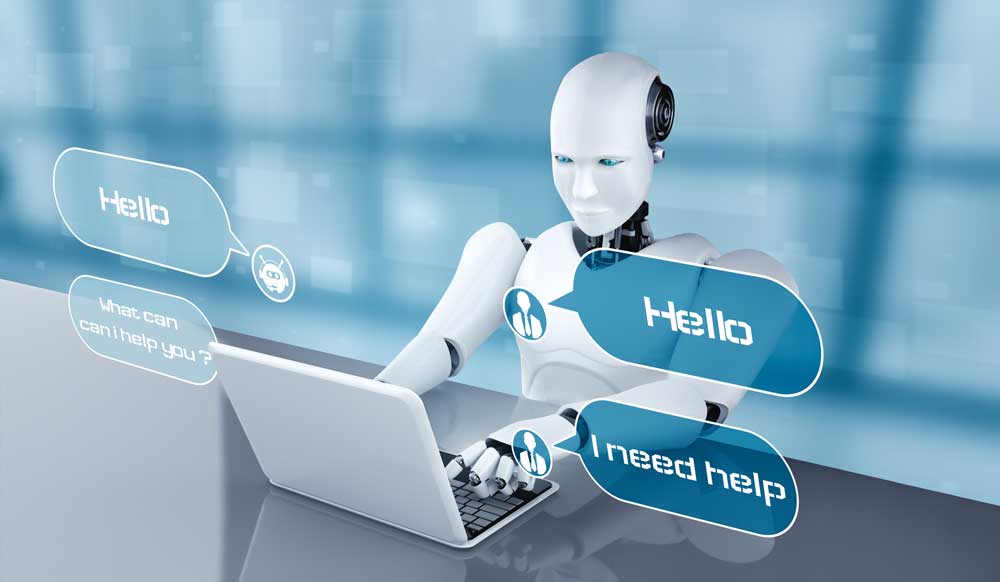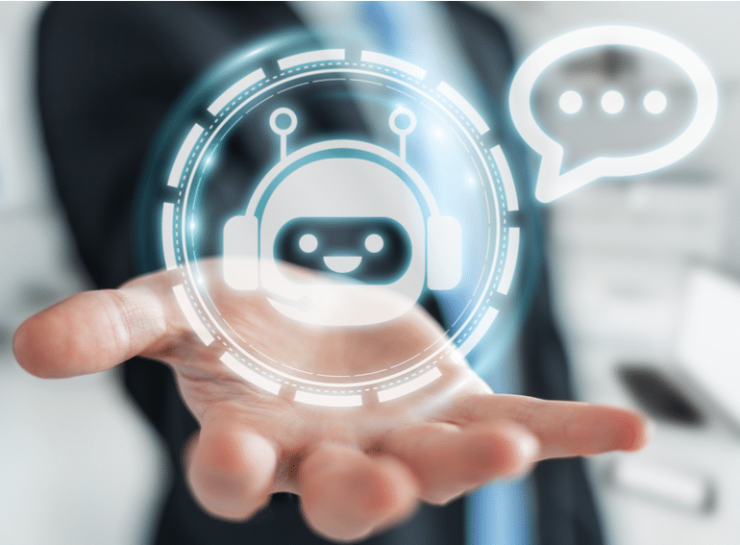In today’s digital landscape, customer experience has become a crucial factor in determining a brand’s success. Companies are constantly looking for innovative ways to engage with their customers, streamline operations, and improve service delivery. Chatbots and artificial intelligence (AI) are transforming the way businesses interact with their audiences, allowing for real-time communication, personalized responses, and better user experiences. This technology enables businesses to provide instant assistance, answer questions, and even guide users through the purchasing journey. In this article, we will explore how chatbots and AI are enhancing digital marketing strategies and improving customer experience.
The Role of AI and Chatbots in Digital Marketing
1. Instant Customer Support
One of the most significant benefits of using AI and chatbots in digital marketing is their ability to offer instant customer support. Traditional customer service methods often require long response times, frustrating customers who need quick answers. With AI-powered chatbots, businesses can provide immediate responses to frequently asked questions, troubleshoot common issues, and offer product recommendations around the clock.

These AI systems work seamlessly across various communication platforms, including websites, mobile apps, social media, and messaging apps. Customers no longer have to wait for business hours or navigate through long automated phone menus. Chatbots and AI create a direct, efficient line of communication, helping to keep customers satisfied and loyal to the brand.
2. Personalized Interactions
AI technology allows businesses to analyze customer data and deliver personalized experiences. By understanding users’ preferences, browsing behavior, and purchase history, AI can tailor recommendations and responses to meet individual needs. Personalization enhances the customer experience by making interactions feel more relevant and engaging.
For example, when a customer visits an e-commerce website, an AI-powered chatbot can suggest products based on their past purchases or browsing activity. This level of personalization can increase conversion rates and drive higher engagement, as customers are more likely to purchase items that are specifically tailored to their preferences.
3. 24/7 Availability
In today’s globalized world, businesses operate across time zones, and customers expect to be able to interact with brands at any hour of the day. Traditional customer service methods, such as phone support or live chat agents, are limited to business hours, but AI-powered chatbots provide a 24/7 presence. Whether it’s a customer in a different time zone or someone browsing in the middle of the night, AI chatbots can engage with users at any time, ensuring that they never feel neglected.
This round-the-clock availability not only improves the customer experience but also allows businesses to cater to a wider audience. With AI chatbots handling inquiries and requests outside of working hours, businesses can focus on high-priority tasks during the day while their chatbot manages routine queries.
4. Lead Generation and Qualification
AI and chatbots can also be instrumental in lead generation and qualification. Instead of relying on manual processes to gather and evaluate potential leads, AI systems can automatically engage with website visitors and capture relevant information. For example, a chatbot might ask users a series of questions to qualify them as potential leads or gather contact details for follow-up.
By automating the lead qualification process, businesses can ensure that their sales teams focus on high-quality leads rather than spending time sorting through irrelevant inquiries. This helps streamline the sales funnel and improves conversion rates.
5. Seamless Integration with Marketing Campaigns
AI and chatbots can be integrated into digital marketing campaigns across various platforms, enhancing the overall customer journey. For example, if a user clicks on an ad or an email campaign, a chatbot can immediately engage with them on the landing page, providing answers to questions, offering discounts, or guiding them through the next steps in the sales process.
This integration ensures a cohesive and seamless experience for the customer, allowing businesses to nurture leads and guide them through the sales funnel. With AI and chatbots, businesses can maintain a consistent, personalized message across all touchpoints of the customer journey.
How AI and Chatbots Enhance the Customer Experience
1. Faster Response Times
One of the main reasons customers seek out brands with AI and chatbot solutions is the speed of response. In a world where consumers expect immediate gratification, waiting too long for a response can lead to frustration and lost sales. AI chatbots provide near-instantaneous answers, resolving customer inquiries efficiently without the need for human intervention.
This speed enhances the customer experience, allowing users to quickly get the information they need without feeling inconvenienced. Whether it’s answering product questions, providing order status updates, or guiding users through troubleshooting, AI helps deliver faster solutions that leave customers satisfied.
2. Better Decision-Making with Data Insights
AI doesn’t just interact with customers; it also gathers and analyzes large amounts of data to help businesses make more informed decisions. By tracking user behavior, sentiment, and interactions, AI can provide valuable insights into customer preferences, pain points, and purchasing patterns. Businesses can then use this information to optimize marketing campaigns, product offerings, and customer service strategies.
For example, AI can reveal which products are popular among specific customer segments or identify common issues customers face with a particular service. This data-driven approach empowers businesses to make proactive improvements, ensuring that customers receive the best possible experience.
3. Improved Customer Engagement
AI-powered chatbots can engage customers through dynamic conversations, making interactions feel more like a natural dialogue rather than a one-sided query. By asking users relevant questions, offering personalized recommendations, and responding intelligently to input, chatbots help create a more engaging experience for customers.
This level of engagement encourages customers to interact with the brand more frequently and deeply, fostering a stronger connection between the business and the customer. The more engaged a customer is, the more likely they are to make a purchase or recommend the brand to others.
4. Proactive Customer Support
AI and chatbots can also be proactive in addressing customer needs before they even arise. By analyzing user behavior in real-time, chatbots can anticipate issues and provide solutions before the customer has to ask for help. For example, if a customer is stuck on a specific page or browsing a product for a prolonged period, a chatbot can offer assistance by suggesting alternatives or providing more information about the product.
Proactive support enhances the customer experience by making users feel cared for and ensuring that potential issues are addressed quickly.
Best Practices for Implementing AI and Chatbots in Digital Marketing

1. Maintain a Human Touch
While AI and chatbots are highly effective at automating tasks, it’s essential to maintain a human touch in customer interactions. Many customers prefer speaking with a real person for complex or sensitive issues, and it’s important to offer an option to escalate to a live agent when necessary. A seamless handoff from chatbot to human agent ensures a smooth customer experience and reinforces trust in the brand.
2. Keep Conversations Natural
When developing AI chatbots, it’s essential to create natural-sounding conversations that don’t feel robotic. The more conversational and human-like the chatbot’s responses are, the better the customer experience. By using natural language processing (NLP) technology, chatbots can understand user intent and respond in a way that feels more natural and less scripted.
3. Personalize Interactions
Personalization is a key factor in delivering exceptional customer experiences. AI chatbots should leverage data such as previous interactions, browsing history, and user preferences to provide personalized recommendations and responses. Personalization helps build stronger connections with customers and makes them feel valued.
4. Monitor and Optimize Performance
Regularly monitoring and optimizing chatbot performance is essential for ensuring that it continues to meet customer expectations. Businesses should track key metrics such as response time, resolution rates, and customer satisfaction to identify areas for improvement. Continuous optimization helps ensure that AI and chatbots remain effective at enhancing the customer experience.
Conclusion
Chatbots and AI are revolutionizing the way businesses interact with customers, providing instant support, personalized experiences, and 24/7 availability. By leveraging these technologies, businesses can enhance customer satisfaction, streamline operations, and boost conversions. The key to success lies in integrating AI and chatbots seamlessly into the customer journey while maintaining a human touch and continually optimizing performance. As AI continues to evolve, the role of chatbots in digital marketing will only grow, offering businesses more opportunities to engage with customers and create lasting relationships.

Leave a Reply